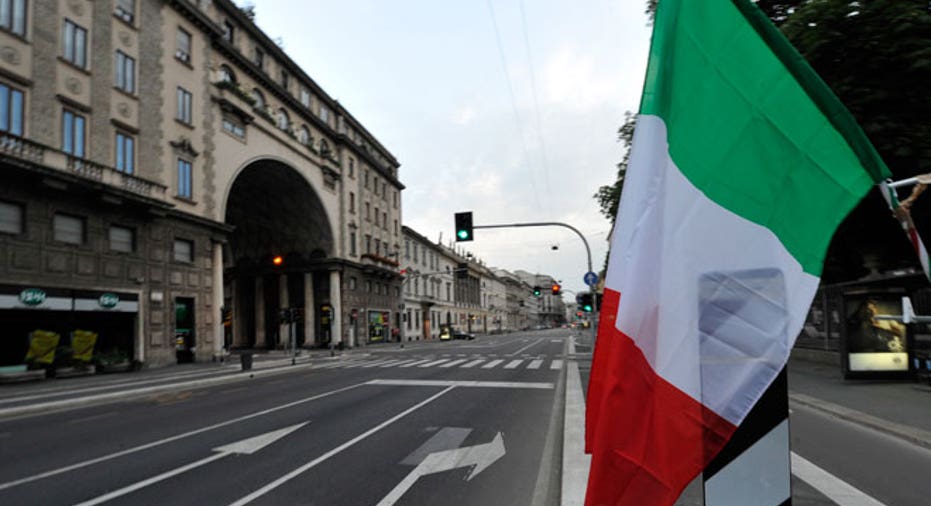Italy's Borrowing Costs Jump at Auction

Italy's borrowing costs rose to their highest in four months on Wednesday at the first bond auction since an election that raises the prospect of prolonged political instability.
No party won a parliamentary majority in the weekend vote, rattling investors in the euro zone's third largest economy and rekindling concerns over the region's debt problems.
Although the treasury sold the maximum planned amount of 4 billion euros of the new 10-year bond, the yield it had to offer jumped to 4.83 percent, the highest since October. Yields in the secondary market were, however, a little easier than on Tuesday.
There were signs that foreign investors had stayed away from the auction, concerned at the political uncertainty, leaving Italian institutions to buy up most of the paper.
"Demand for both lines was relatively solid, probably led by domestic accounts who took advantage of higher yields," wrote Newedge strategist Annalisa Piazza.
"We rule out foreign accounts have played a major role at today's auction as political risks remain high."
The bid-to-cover ratio was a healthy 1.65 - bids totalled 6.6 billion euros - and Italian debt prices and European stocks briefly rose on Wednesday after the results, with investors relieved that the sale had gone smoothly.
Rome's 10-year yields in the secondary market fell 7 basis points to 4.83 percent.
The 10-year yield at auction also compares with a level of 4.97 percent on the grey market this morning and with a 2012 peak of 6.19 percent in June, before the European Central Bank's pledge to buy government bonds of weaker euro zone countries.
That promise defused the euro zone debt crisis at the time.
Italy also issued 2.5 billion euros of a five-year bond on Wednesday, paying a yield of 3.59 percent, up from 2.94 percent one month ago.
"They got it done. The yields are higher than anything they've done for quite some time but that's hardly a big surprise," said Elisabeth Afseth, a rate strategist at Investec.
An auction of six-month bills on Tuesday also saw yields on short-term debt rise sharply compared with the previous sale.
CREDIT NEGATIVE
The election results, notably the dramatic surge of the anti-establishment 5-Star Movement of comic Beppe Grillo, left the centre-left bloc with a majority in the lower house but without the numbers to control the upper chamber.
Pier Luigi Bersani, head of the centre-left Democratic Party (PD), has the difficult task of trying to agree a "grand coalition" with conservative former premier Silvio Berlusconi, the man he blames for ruining Italy, or striking a deal with Grillo, a completely unknown quantity in conventional politics.
The alternative is new elections either immediately or within a few months, although both Berlusconi and Bersani have indicated that they want to avoid a return to the polls.
For his part, Grillo, whose new movement won the most votes of any single party, has indicated that he believes the next government will last no more than six months.
Moody's Investors Service said on Wednesday the outcome of the vote could be bad for its credit rating because it raises the possibility of new elections, prolonging the country's political uncertainty.
Standard & Poor's said that the election would not immediately affect the country's rating but could in the future.
S&P's rates Italy BBB-plus. Fitch rates the country A-minus, and Moody's rates it Baa2. All those ratings already carry negative outlooks from the agencies.
The Italian treasury had taken advantage of a benign market environment at the beginning of this year to cover more than 20 percent of its total 2013 refunding needs.



















